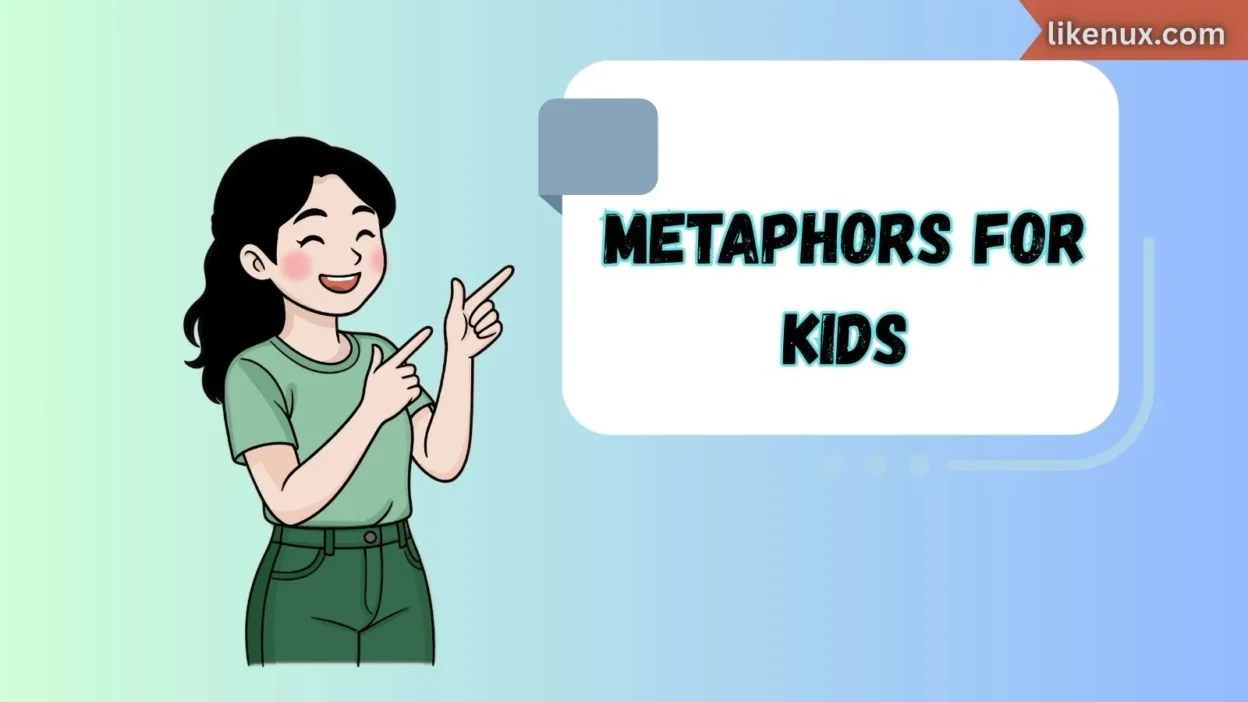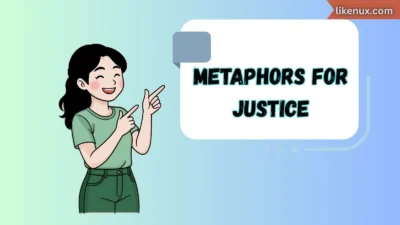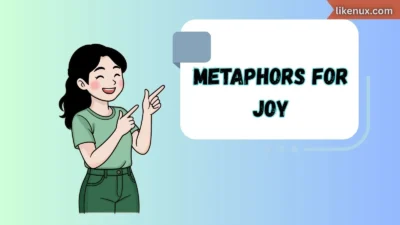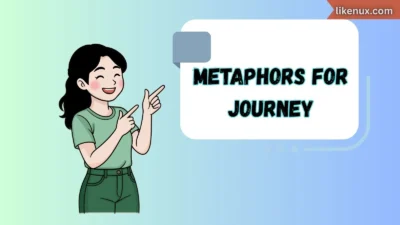When it comes to describing kids, words sometimes fall short. Children are full of energy, curiosity, innocence, and endless imagination. To capture these qualities, people often use Metaphors for Kids—expressions that compare kids to everyday things in a creative way. Metaphors not only make language colorful but also help us communicate feelings of love, warmth, and care more effectively.
As a teacher and writer, I’ve often noticed that using metaphors for kids makes conversations more engaging. Whether you’re a parent trying to describe your child’s spark, a teacher writing feedback, or simply someone expressing love for children, these metaphors will help you say it beautifully.
Below are 25 thoughtful metaphors for kids, each explained with meaning, a sentence, best use, and alternative phrases.
1. Kids are like sunshine
Meaning: They bring warmth and light into life.
In a sentence: My daughter is like sunshine on the cloudiest day.
Best use: Perfect for expressing how a child brightens your mood.
Other ways to say: ray of light, bright spark, morning sun.
2. Kids are tiny explorers
Meaning: They are always curious and discovering new things.
In a sentence: Every toddler is a tiny explorer in their own backyard.
Best use: Great for describing curiosity and learning.
Other ways to say: adventurer, wanderer, discoverer.
3. Kids are sponges
Meaning: They absorb knowledge and experiences quickly.
In a sentence: Children are sponges when it comes to learning languages.
Best use: Useful for teachers and parents discussing learning ability.
Other ways to say: quick learner, fast absorber, little student.
4. Kids are blank canvases
Meaning: They are ready to be shaped with experiences.
In a sentence: Every child is a blank canvas, waiting for colors of life.
Best use: Ideal in parenting or education discussions.
Other ways to say: open page, clean slate, fresh start.
5. Kids are butterflies
Meaning: They are delicate, beautiful, and constantly changing.
In a sentence: Like butterflies, kids grow and transform every day.
Best use: Expressing growth and transformation.
Other ways to say: delicate soul, little wings, fluttering spirit.
6. Kids are wildflowers
Meaning: They grow freely and beautifully in unexpected places.
In a sentence: Children are wildflowers blooming in the garden of life.
Best use: Talking about individuality and natural growth.
Other ways to say: free spirit, natural bloom, untamed beauty.
7. Kids are mirrors
Meaning: They reflect the world and people around them.
In a sentence: Kids are mirrors of the kindness they see in others.
Best use: When emphasizing the importance of role models.
Other ways to say: reflection, echo, imitator.
8. Kids are little seeds
Meaning: They need nurturing to grow strong and healthy.
In a sentence: Every child is a seed that needs love to flourish.
Best use: Parenting, education, or growth discussions.
Other ways to say: sapling, sprout, bud.
9. Kids are treasures
Meaning: They are precious and invaluable.
In a sentence: My children are the greatest treasures of my life.
Best use: Expressing deep love and value.
Other ways to say: gems, jewels, priceless gift.
10. Kids are stars
Meaning: They shine brightly and guide us with their light.
In a sentence: Each child is a star in the universe of our family.
Best use: Perfect for highlighting uniqueness.
Other ways to say: spark, twinkle, guiding light.
11. Kids are dreams in motion
Meaning: They represent hopes and future possibilities.
In a sentence: Children are dreams in motion, shaping tomorrow.
Best use: Motivational writing, speeches.
Other ways to say: living hope, future vision, promise.
12. Kids are open books
Meaning: Their emotions and thoughts are honest and visible.
In a sentence: My son is an open book, always showing how he feels.
Best use: When talking about honesty and innocence.
Other ways to say: transparent heart, pure soul, honest voice.
13. Kids are tiny teachers
Meaning: They often teach us valuable life lessons.
In a sentence: Kids are tiny teachers who remind us to live in the moment.
Best use: Parenting blogs or reflective conversations.
Other ways to say: life lesson givers, guides, little mentors.
14. Kids are blank pages in a storybook
Meaning: Their life is yet to be written.
In a sentence: Children are blank pages waiting for life’s story.
Best use: Future-oriented discussions.
Other ways to say: unwritten story, fresh chapter, new narrative.
15. Kids are rainbows
Meaning: They bring beauty after storms.
In a sentence: After my struggles, my kids became my rainbow.
Best use: Describing joy after hardship.
Other ways to say: light after rain, color of hope, promise.
16. Kids are sparks of magic
Meaning: They add wonder and excitement to life.
In a sentence: Every child is a spark of magic in this world.
Best use: Celebratory or emotional writing.
Other ways to say: enchantment, wonder, miracle.
17. Kids are gardeners of joy
Meaning: They plant happiness wherever they go.
In a sentence: Children are gardeners of joy in every family.
Best use: Talking about positivity and happiness.
Other ways to say: joy spreaders, little planters, happiness makers.
18. Kids are little comets
Meaning: They move with energy, leaving trails of awe.
In a sentence: My nephew is a little comet—always bright and fast.
Best use: Describing energy and brilliance.
Other ways to say: shooting star, fireball, spark trail.
19. Kids are unfinished songs
Meaning: Their potential is still unfolding.
In a sentence: Every child is an unfinished song full of melodies to come.
Best use: Conversations about growth.
Other ways to say: untold story, incomplete poem, budding tune.
20. Kids are diamonds in the rough
Meaning: They have hidden potential waiting to shine.
In a sentence: Every child is a diamond in the rough, waiting for polishing.
Best use: Motivational or educational writing.
Other ways to say: hidden gem, raw jewel, uncut stone.
21. Kids are streams of laughter
Meaning: Their joy flows endlessly.
In a sentence: My home is filled with streams of laughter thanks to my kids.
Best use: Describing happiness.
Other ways to say: giggles, ripples of joy, fountains of fun.
22. Kids are tiny architects
Meaning: They build dreams and ideas from imagination.
In a sentence: Children are tiny architects of their own worlds.
Best use: Talking about creativity.
Other ways to say: dream builders, vision creators, designers.
23. Kids are lanterns of hope
Meaning: They guide us toward a brighter future.
In a sentence: Children are lanterns of hope in uncertain times.
Best use: Inspirational speeches, family messages.
Other ways to say: guiding flame, torchbearers, beacons.
24. Kids are little storms
Meaning: They bring chaos but also renewal.
In a sentence: Sometimes kids are little storms, shaking up our lives.
Best use: Parenting humor or realism.
Other ways to say: whirlwinds, tornadoes of joy, bursts of energy.
25. Kids are songs of the heart
Meaning: They are the melody of love in our lives.
In a sentence: My children are songs of the heart I never stop singing.
Best use: Emotional writing, family conversations.
Other ways to say: love tune, heart melody, life’s song.
FAQs
1. Why do people use metaphors for kids?
Metaphors help capture emotions, innocence, and the unique qualities of children in ways plain language can’t.
2. Can teachers use these metaphors in the classroom?
Yes! Teachers often use metaphors to encourage students and describe learning experiences in relatable ways.
3. Are these metaphors suitable for writing about my own child?
Absolutely. These metaphors work beautifully in letters, journals, and family conversations.
4. How can metaphors help in parenting?
They can make communication warmer, helping parents express love, pride, or even challenges with more empathy.
5. Do metaphors for kids change with culture?
Yes, cultural traditions influence how people describe children. But the essence—love, growth, joy—remains universal.
Conclusion
Children are not just little humans—they are living metaphors of life itself. Whether they remind us of sunshine, stars, or seeds, kids carry within them the essence of growth, joy, and wonder. As parents, teachers, or caregivers, using these metaphors allows us to express love with warmth and care while also appreciating the uniqueness of every child.
The next time you describe a child, try one of these metaphors. You might just capture the magic of childhood in a single phrase.

David Robert is a passionate innovator driven by creativity, vision, and purpose. He turns bold ideas into impactful realities through focus, leadership, and dedication.



